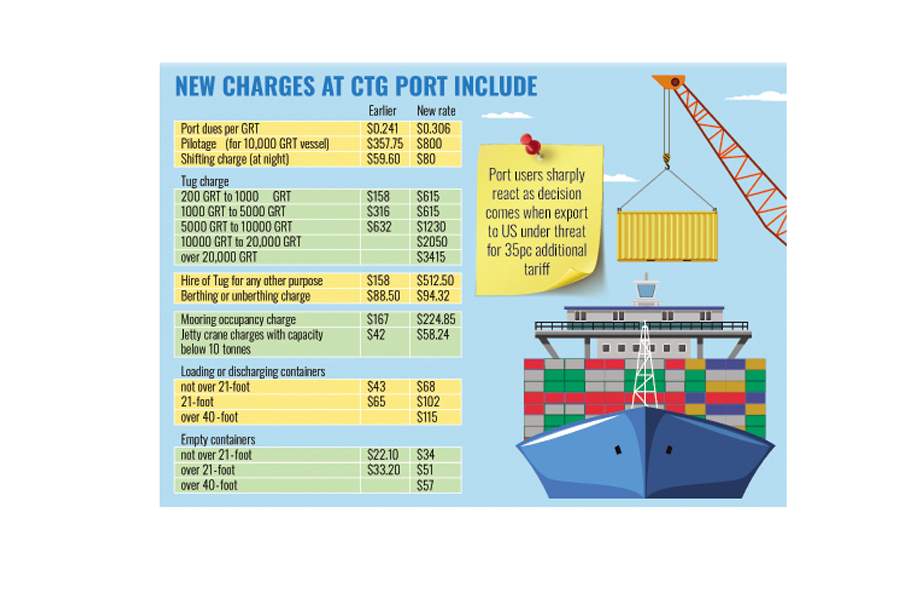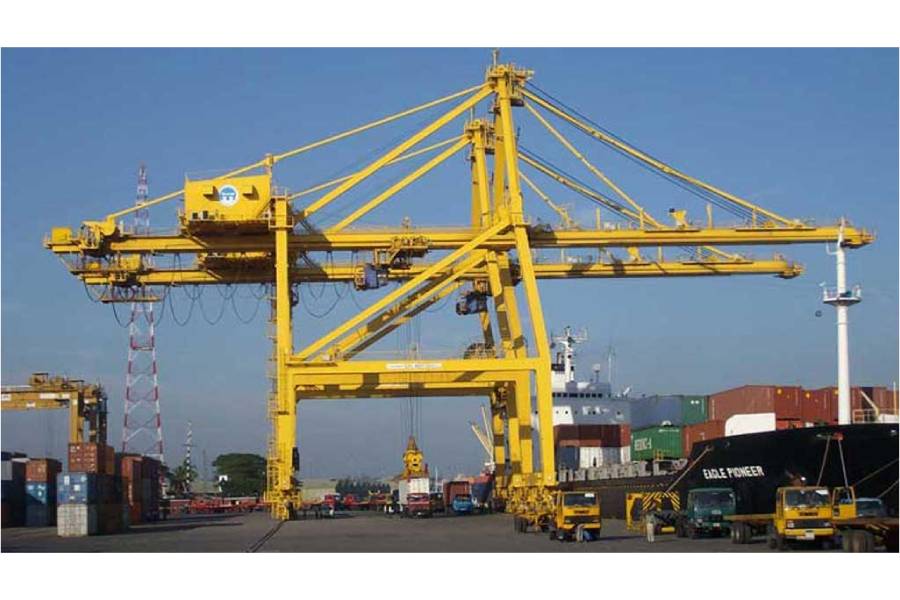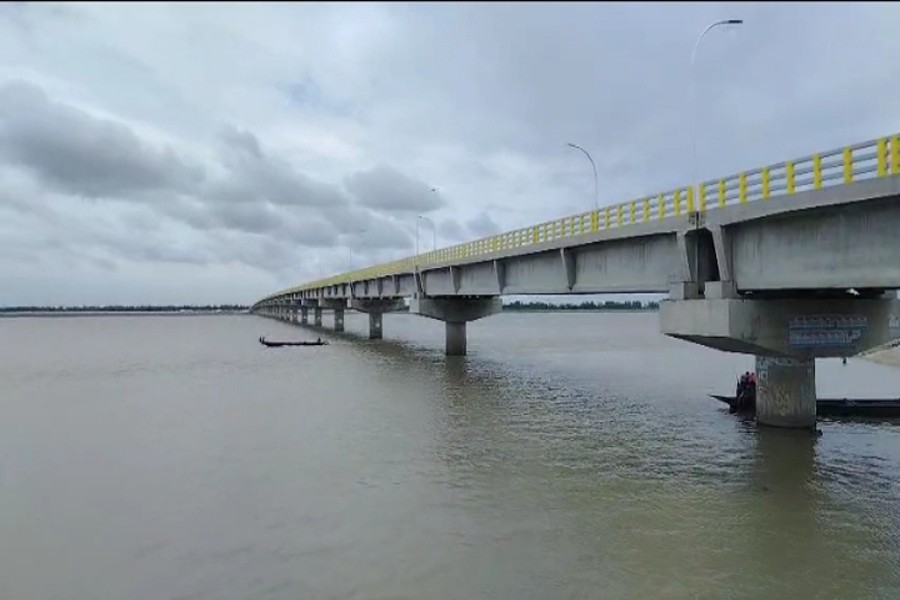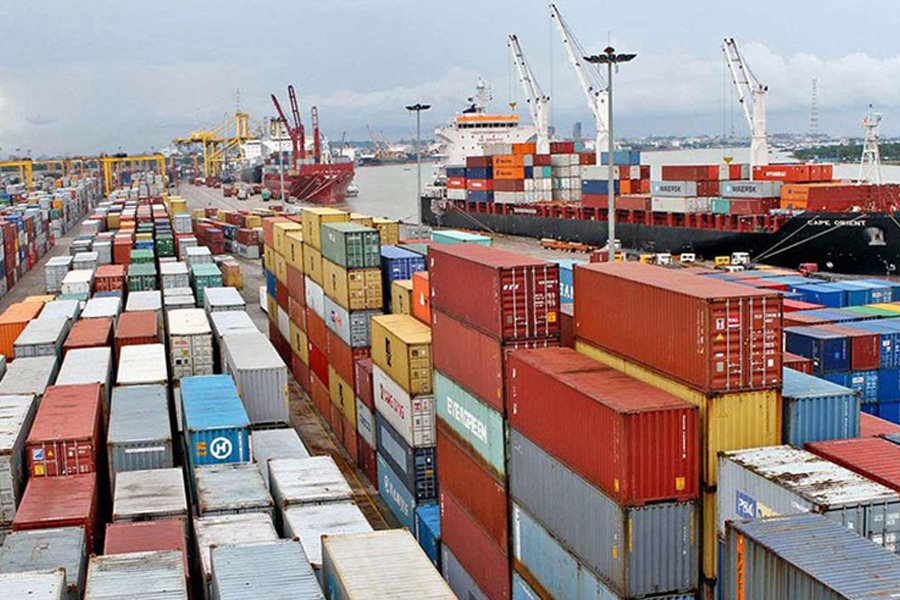Saif
Senior Member
- Joined
- Jan 24, 2024
- Messages
- 15,397
- Reaction score
- 7,874
- Nation

- Residence

- Axis Group

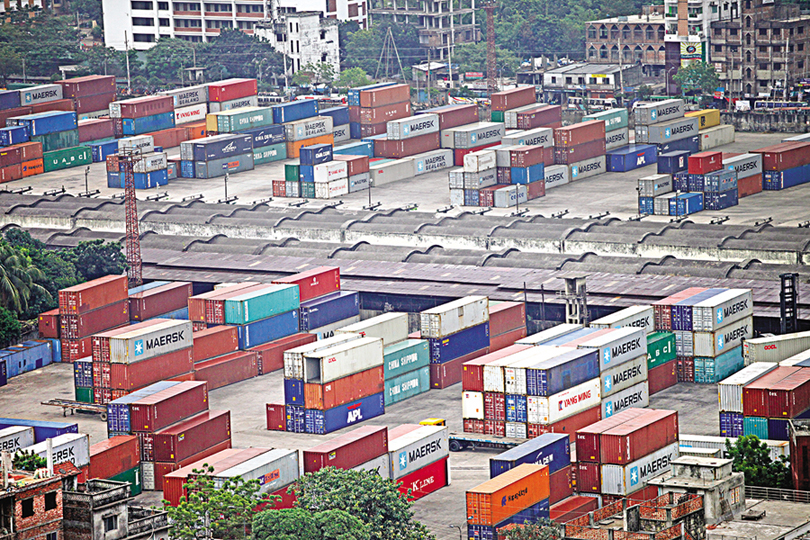
ICDs' handling charge hike to affect export trade
Bangladesh's external trade, especially export, is now up against the wall and the factors behind this are of both domestic and international origin. At a time, when the government's ongoing talks with the current Trump administration of the US, which has imposed a 35 per cent reciprocal tariff on
ICDs' handling charge hike to affect export trade
SYED FATAHUL ALIM
Published :
Jul 24, 2025 23:48
Updated :
Jul 24, 2025 23:48

A view of inland container depot at Kamalapur Railway station —FE File Photo
Bangladesh's external trade, especially export, is now up against the wall and the factors behind this are of both domestic and international origin. At a time, when the government's ongoing talks with the current Trump administration of the US, which has imposed a 35 per cent reciprocal tariff on its import of Bangladesh-origin products are in an uncertain territory, the Internal Container Depot (ICD) owners have unilaterally decided to hike up export cargo handling charges to be effective, according to reports, from September 1.
This development adds a new layer of complication to an already fragile trade environment, where exporters are reeling under the pressure of increasing global competition, trade policy uncertainties and sluggish post-pandemic recovery in demand.
The timing of this enhanced export container handling fees does not seem to be sensitive to the difficulties the country's export trade is at the moment faced with. For, the Bangladesh Inland Container Depot Association (BICDA)'s announcement of enhanced handling fees might further contribute to compromising the competitive edge of the Readymade Garment (RMG), the largest export industry of Bangladesh, in the global market. Given the RMG sector's high sensitivity to cost fluctuations, any increase in logistics-related expenses could erode already thin profit margins and weaken Bangladesh's position against rival exporting countries such as Vietnam, India and Cambodia.
In fact, the ICDs, also known as off-docks, which are located in and around the port city, handle 90 per cent of the total export goods by stuffing those into containers before their shipment through the Chattogram port. Also, close to a quarter of the import containers are sent from the port to these ICDs wherefrom the import goods are delivered.
So, the positive role played by the ICDs in the country's external trade cannot be overstated. Even so, its decisions to raise container handling charges, often, like this time, made without holding prior consultations with the stakeholders including the ministry of shipping, on various pretexts including fuel prices, labour costs, equipment maintenance, devaluation of the Bangladesh Taka (BDT) against the US dollar (USD), rising bank interest rates, overall inflationary pressure and so on, have led to heightened concerns among the exporters particularly those in the RMG sector. Such unilateral pricing strategies not only disrupt budgeting and planning for exporters but also risk triggering a domino effect throughout the export supply chain - from subcontractors and freight forwarders to international buyers already wary of price hikes.
This time, too, the BICDA's tariff hike on export cargo handling will see a 36 per cent to 44 per cent increase in handing fees compared to the existing rates. Also, the handling charges for the empty containers are going to be enhanced by 31.8 per cent. However, the import cargo containers have been spared any handling tariff hike this time around. The apex body of the Bangladesh's readymade garment manufacturers and exporters, the BGMEA, says, BICDA's decision will create a big pressure on the export-oriented industry. The BGMEA has further urged the authorities to consider temporary relief or subsidies to offset the burden on exporters, especially small and medium enterprises that lack the resilience to absorb cost shocks.
Notably, some days back, the Chattogram Port Authority (CPA) itself proposed a raise in its tariffs by 70 per cent to 100 per cent across 50 service categories. But the CPA's proposal, too, could not come at a worse time, when the export sector, particularly the apparel industry was struggling against rising global headwinds that include soaring energy costs, supply chain disruptions, harsher compliance conditions and falling demands in the overseas markets, mainly in Europe and North America. The convergence of domestic cost escalations and global market contractions is squeezing exporters from both ends, raising serious concerns about long-term sustainability.
Now, as if to rub salt to the wound, the BICDA has now come up with a declaration of raised cargo handling fees on the grounds that the investment costs of their depots have risen so significantly that their capacity for expansion has become difficult. They also complained that their new ICDs are in financial straits affecting their operational viability. So, to keep those ICDs viable, exporters will have to pay, for instance, at a 60 per cent higher rate for handling a 20-foot goods-laden container and at a 81 per cent higher rate for the 40-foot-high cube containers and 45-foot containers. Other types of cargo handling fees are also going to experience similar raises. Such a unilateral decision to burden exporters with additional costs risks undermining the entire trade ecosystem. The BICDA should have taken a collaborative approach before announcing the hike.
In these circumstances, the government needs to intervene so that any decision on container handling charge hike is made through concurrence of all the stakeholders involved. Last but not least, before going for any fresh service charge hike, ICD operators should consider the overall state of the export trade, which is now in a struggle for survival.
SYED FATAHUL ALIM
Published :
Jul 24, 2025 23:48
Updated :
Jul 24, 2025 23:48
A view of inland container depot at Kamalapur Railway station —FE File Photo
Bangladesh's external trade, especially export, is now up against the wall and the factors behind this are of both domestic and international origin. At a time, when the government's ongoing talks with the current Trump administration of the US, which has imposed a 35 per cent reciprocal tariff on its import of Bangladesh-origin products are in an uncertain territory, the Internal Container Depot (ICD) owners have unilaterally decided to hike up export cargo handling charges to be effective, according to reports, from September 1.
This development adds a new layer of complication to an already fragile trade environment, where exporters are reeling under the pressure of increasing global competition, trade policy uncertainties and sluggish post-pandemic recovery in demand.
The timing of this enhanced export container handling fees does not seem to be sensitive to the difficulties the country's export trade is at the moment faced with. For, the Bangladesh Inland Container Depot Association (BICDA)'s announcement of enhanced handling fees might further contribute to compromising the competitive edge of the Readymade Garment (RMG), the largest export industry of Bangladesh, in the global market. Given the RMG sector's high sensitivity to cost fluctuations, any increase in logistics-related expenses could erode already thin profit margins and weaken Bangladesh's position against rival exporting countries such as Vietnam, India and Cambodia.
In fact, the ICDs, also known as off-docks, which are located in and around the port city, handle 90 per cent of the total export goods by stuffing those into containers before their shipment through the Chattogram port. Also, close to a quarter of the import containers are sent from the port to these ICDs wherefrom the import goods are delivered.
So, the positive role played by the ICDs in the country's external trade cannot be overstated. Even so, its decisions to raise container handling charges, often, like this time, made without holding prior consultations with the stakeholders including the ministry of shipping, on various pretexts including fuel prices, labour costs, equipment maintenance, devaluation of the Bangladesh Taka (BDT) against the US dollar (USD), rising bank interest rates, overall inflationary pressure and so on, have led to heightened concerns among the exporters particularly those in the RMG sector. Such unilateral pricing strategies not only disrupt budgeting and planning for exporters but also risk triggering a domino effect throughout the export supply chain - from subcontractors and freight forwarders to international buyers already wary of price hikes.
This time, too, the BICDA's tariff hike on export cargo handling will see a 36 per cent to 44 per cent increase in handing fees compared to the existing rates. Also, the handling charges for the empty containers are going to be enhanced by 31.8 per cent. However, the import cargo containers have been spared any handling tariff hike this time around. The apex body of the Bangladesh's readymade garment manufacturers and exporters, the BGMEA, says, BICDA's decision will create a big pressure on the export-oriented industry. The BGMEA has further urged the authorities to consider temporary relief or subsidies to offset the burden on exporters, especially small and medium enterprises that lack the resilience to absorb cost shocks.
Notably, some days back, the Chattogram Port Authority (CPA) itself proposed a raise in its tariffs by 70 per cent to 100 per cent across 50 service categories. But the CPA's proposal, too, could not come at a worse time, when the export sector, particularly the apparel industry was struggling against rising global headwinds that include soaring energy costs, supply chain disruptions, harsher compliance conditions and falling demands in the overseas markets, mainly in Europe and North America. The convergence of domestic cost escalations and global market contractions is squeezing exporters from both ends, raising serious concerns about long-term sustainability.
Now, as if to rub salt to the wound, the BICDA has now come up with a declaration of raised cargo handling fees on the grounds that the investment costs of their depots have risen so significantly that their capacity for expansion has become difficult. They also complained that their new ICDs are in financial straits affecting their operational viability. So, to keep those ICDs viable, exporters will have to pay, for instance, at a 60 per cent higher rate for handling a 20-foot goods-laden container and at a 81 per cent higher rate for the 40-foot-high cube containers and 45-foot containers. Other types of cargo handling fees are also going to experience similar raises. Such a unilateral decision to burden exporters with additional costs risks undermining the entire trade ecosystem. The BICDA should have taken a collaborative approach before announcing the hike.
In these circumstances, the government needs to intervene so that any decision on container handling charge hike is made through concurrence of all the stakeholders involved. Last but not least, before going for any fresh service charge hike, ICD operators should consider the overall state of the export trade, which is now in a struggle for survival.

